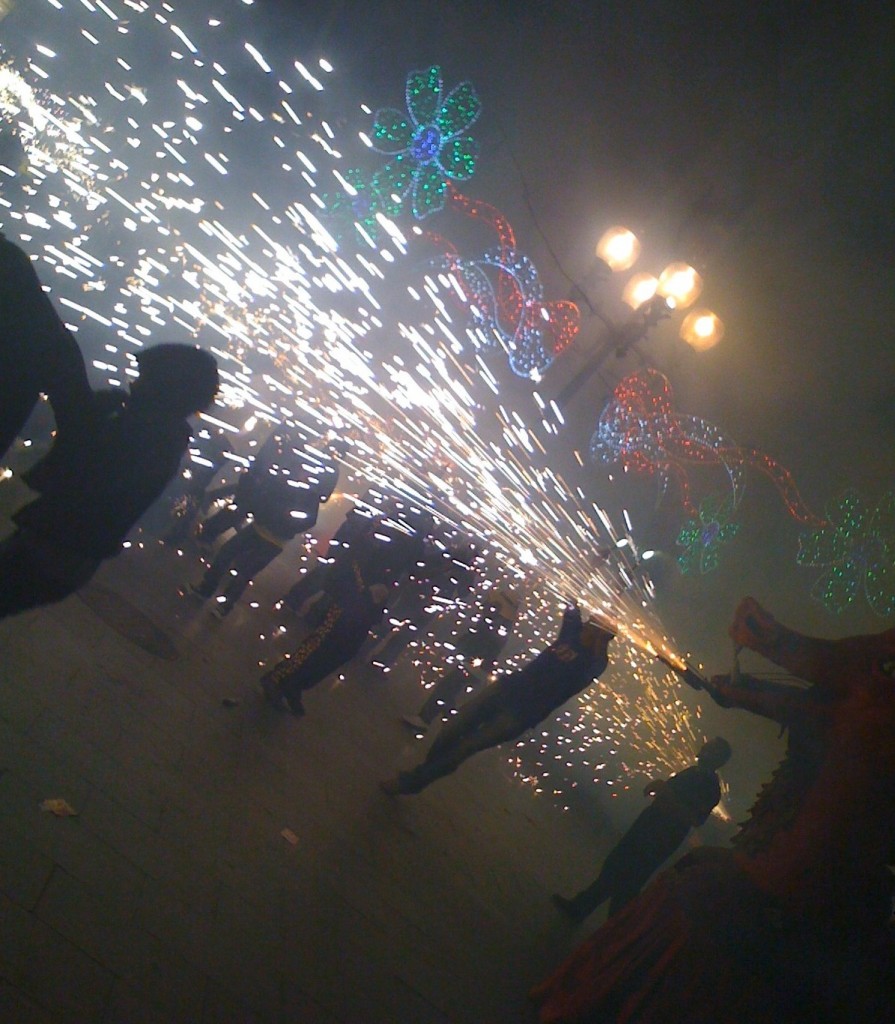In no particular order, here are some things I am appreciating at the moment about living in Spain.
1-Cursing.
There is plenty of cursing in everyday speech here in Spain, from classrooms to courthouses. It is part of the daily vernacular of the Spanish to punctuate sentences with curse words. Natives generally speak pretty loudly in the first place, so if you are already yelling, what better way is there to indicate some emphasis than to curse? Personally, I find it amusing and even delightful. You gotta love a place that runs commercials for cold medicine that begin with a woman coughing and saying: “joder, estoy resfriada” which translates to “fuck, I have a cold”.
2-Flexible hours, in every meaning of the phrase.
OK, I’ll admit – sometimes it sucks when it’s 4:45pm and you are still waiting outside the shop or bank that was supposed to re-open after siesta at 4:30. You might answer ahora to the person who shows up to wait along side you outside the shop when they ask what time the place re-opens. But ahora doesn’t necessarily mean now. On the other hand, when you show up late to an appointment, work, a meeting or dinner, lateness is almost always (if not actually always) overlooked. And for me, who is very rarely not late, it’s an acceptable trade off. In fact, if you make plans with friends to meet at 10:00pm, and you show up at 10:30pm, you are right about on time. You may even be the first to show.
3-Speaking of siesta, living here means that between 2 and 4:30 there’s no point in trying to get anything done.
This is generally lunchtime and everything but the restaurants and cafes close until 4, 4:30 or 5pm. The reopening hour depends on the shop. Usually the hours are posted, but like I said, those hours tend to be flexible. This might seem to be a pain in the ass at first, but because these places are closed for a few hours during the day, it means everything stays open late. When you get off work at 6 or 8 or whenever, shops, the post office and even some banks are open until at least 9, with some open until 10pm and the streets are full of people, sidewalk cafes and bars busy serving drinks and tapas (but certainly not dinner, anything before 9:30 is far too early) and the day continues until dinner, and then the night begins which is generally not for sleeping but for socializing.
4-Willingness to take risks for the sake of tradition – and a good time.
There might be some festivities here considered dangerous by American standards, but people take responsibility for their actions should they decide to participate. For example, the Catalan tradition of people climbing onto each others shoulders to heights up to 7-9 people stacked atop each other, then sending a 5 year old to scale the tower and slide down the other side (called Casteller teams). Or the Falles in Valencia, where millions of firecrackers are set off in the streets during a weekend, and after parading through the town, giant wooden statues are then torched in public while people stand very, very close. Or the Catalan tradition of Correfoc, where people dressed as devils shoot fireworks into the crowds while drummers lead a local float, usually a dragon or demon, or sometimes just a donkey (the symbol of Catalunya) that also spits fire while people, children included, run through the sparks. I think the Spanish like the feeling that they are alive. I can appreciate that.
5-Honesty in public places.
People generally don’t form lines here, except maybe in the supermarket where you need a chance to stack all your stuff. Otherwise, when you enter a bank or bakery, it’s standard practice to ask the people standing or sitting around “Quien es la ultima?” (Who is the last). Whomever indicates they are servidor, meaning “I am” but literally translating to “your faithful servant”. Then you know who you are behind, and you become the servidor or servidora. Another display the honesty system is in bars and cafes. When you order, you don’t give your credit card to keep a tab open and don’t pay as you are served. You order, enjoy your food and drinks, then when you decide to leave, you tell the bartender or cashier exactly what you ordered and they ring you up. The cashier won’t keep track of what you consumed, he is likely busy serving up drinks or delivering food. He expects you to remind him what you had. And remarkably there is very little exploitation of this.
6-Bargaining for rent prices.
Just because an ad specifies one price, it doesn’t always mean the owner or agency expect to get it. It’s like car sales, you can bargain for extras or bargain down the price. If you want a different contract term, a different rent price, utilities thrown in, or to furnish an unfurnished place, you can request it. Most agencies and owners are more than willing to work with you to get the place rented.
7-Public displays of affection.
People kiss each other on both cheeks in greeting, touch each other when speaking, hug each other, slap shoulders, touch each others dogs and children without fear of offending, and kiss and hold hands in public. This goes for straight, gay and platonic couples. Although a Catholic country, there is no stigma or scorn towards gay couples and gay marriage is legal. I see gay couples walking hand in hand daily here, everywhere. No one tuts disapprovingly, and that is refreshing.
8-Cheap booze.
A good bottle of wine can be found for around 3€, and in smaller pueblos that sell local wines, you can find totally acceptable, in fact quite often delicious, wines for under 1€. But there are thousands of places in every city to grab a beer or a glass of wine- you can go to a bar, a café, a bodega or a cevercería- there is one on every corner, and if the cost for a glass of beer or wine is over 2.50€ that is considered expensive. And while very there are plenty of British taking advantage of the cheap drink prices, very few of the Spanish exploit this to a negative effect. Though you will see the Spanish regularly drinking a beer at lunchtime then going back to work. And it is not unusual to see the waitress adding some brandy to morning coffees, especially at cafes frequented by blue collar workers. Because, as we all know, there’s nothing like a drink or two before work to help with your productivity.







December 1st, 2015 at 2:36 am
One of my favorite things about Les Falles was seeing all the little kids running around with lit cigarettes that their parents had handed to them to light fireworks. Good times!